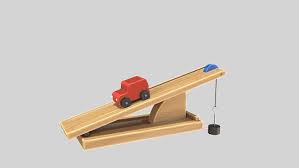- Profesor: Dr. DJAMEL SAHEL
- Profesor: Dr. BENAZZOUZ AZZOUZI
- Profesor: Dr. mohamed saadaoui

Ce cours de physique est destiné aux étudiants de 1ère année ST, SM et SNV et ce conformément au nouveau programme du système LMD. Il se repose essentiellement sur les lois de Newton. Ce cours est structuré comme suit :
Le premier chapitre présente la définition d’un vecteur, la connaissance des vecteurs de position, vitesse, l’accélération dans trois coordonnées ; coordonnée cartésienne, coordonnée cylindrique, coordonnée polaire.
Le deuxième chapitre fournir les différents états et formes du mouvement ; mouvement rectiligne, mouvement curviligne et mouvement circulaire.
Le troisiemme chapitre presente une etude sur les mouvements usuels.
- Profesor: Dr. Ayoub Belli
- Profesor: Dr. AMINE BENHOUIA
- Profesor: Dr. MOURAD ROUGAB
- Profesor: Dr. DJAMEL SAHEL
This course is designed for first-year university students pursuing studies in common technological sciences and materials science, and it aligns with the Algerian LMD educational program.
- Profesor: Dr. MOURAD ROUGAB
This manuscript is a Problems and Solutions in the Structure of Matter, module
“Chemistry 1”. It is intended for undergraduate students in the first year of their
undergraduate degree program in Science and Technology (ST). It is presented according
to the common core curriculum of the Science and Technology field. It covers the structure of
matter (description of the atom and chemical bonding), chemical elements, and the periodic
table with energy quantification. It is reinforced with practical exercises to help students
better assimilate new concepts for successful exam completion and improve their ability to
solve chemistry problems.
- Profesor: Dr. Yasmina Adjeroud
The supervised work of the structure of the unit has a minimum weekly hourly volume of 10 weeks. it is a fundamental teaching unit:
Code: UEF 1.1
Credits: 18
Coefficients: 9.
For this reason I taught this module online with 8 videos or each series of the four carries two videos. These videos closed with two revision sessions taught by the zoom application in combination with e-learnig application.
Dr. Ahmed AZIZI
Associate Professor en Genius Processus
Department of Common Trunk of Sciences and Technologies
Faculty of Technology
a.azizi@lagh-univ.dz
- Profesor: Dr. Yasmina Adjeroud
- Profesor: Dr. AHMED AZIZI
- Profesor: Dr. Boulanouar BAKCHICHE
- Profesor: Dr. MERZAK DOULACHE

The directed work in particle mechanics is intended for first-year students in the common core of science and technology.It covers the following chapters:
- Vector analysis,
- Kinematics of the particle,
- Dynamics of the particle,
- Work and energy in the case of a material point.

- Profesor: Dr. Fatima ELHAMRA
Ce cours de physique 1 (mécanique du point) est destiné aux étudiants de 1 ère année ST et SM et ce conformément au nouveau programme du système LMD. Il porte essentiellement sur les notions de base de mécanique du point.
- Profesor: Dr. Imane Koriba
